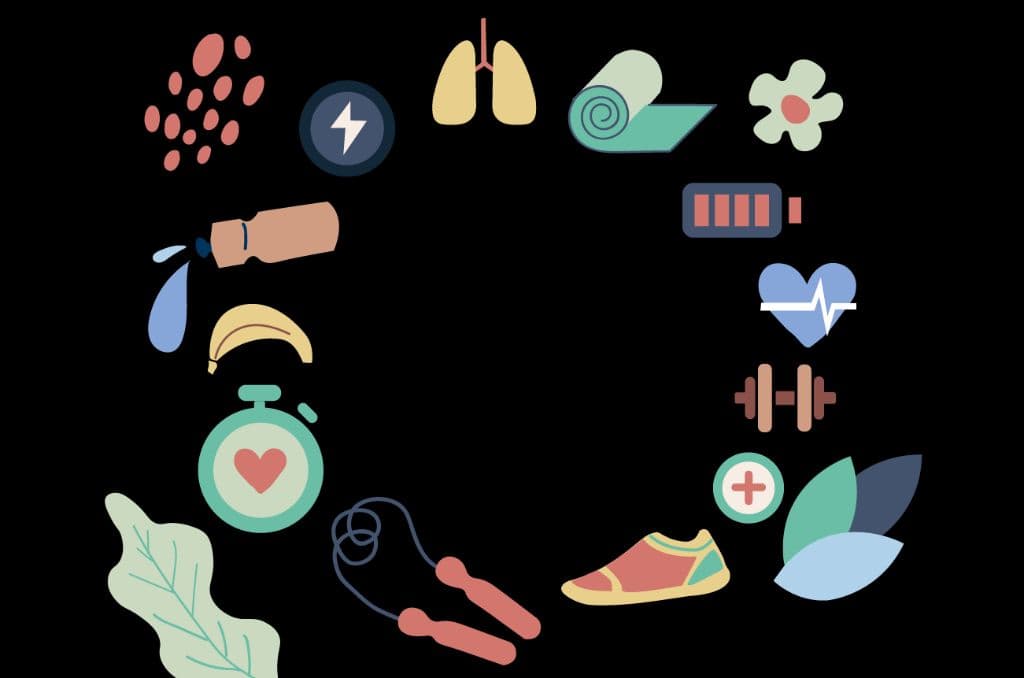An adult is expected to engage in at least 150 minutes of moderate-intensity exercising and 75 minutes of heavy-intensity exercising, throughout the week. Including regular exercising in our daily routine, has proved to be beneficial to our minds and bodies in several ways. It offers various health perks like weight management, better productivity, improved sleep, stress management, balanced hormones, stronger immunity and several others. However, on another note, excessive exercising can reverse these perks and prove to have detrimental effects on your health.
Hence, tracking your workout time daily and throughout the week, will help you know whether you are following a healthy exercise routine. Medical experts have suggested that those who exercise for more than 300 minutes every week are at a high risk of physical burnout and other health hazards that follow.
Not knowing enough
Today, we are more self-aware of our health priorities and have tried to rigorously adopt a healthier lifestyle with better eating and workout routines. Especially those of us who suffer from PCOS. Exercising is considered to be the most efficient method to control/curb PCOS. But when we speak of exercise with reference to getting healthier or losing weight, the biggest concern is that we don't discuss enough, how much exercise is good for you and how to start off in the first place.
In our rush to achieve our fitness goals, we over-burden the body with a constant rigorous activity that will only negatively affect our hormonal levels in the long run.
When done correctly, exercise brings with it wonderful benefits such as -
- Improving insulin resistance
- Managing healthy weight
- Boosting endorphins that improve mood and reduce craving behaviors
- Reducing the long term risk of conditions such as diabetes, heart disease and increased blood cholesterol
- Reduced risk of osteoporosis (brittle bones) and better bone and muscle health
But there are certain risks that are associated with intense exercising in menstruators
- Our reproductive hormones are regulated by an axis called the HPO axis. The hypothalamus (H) makes a hormone called GnRH which needs to be secreted in a pulsatile form for ovulation to happen. GnRH regulates the release of the hormone LH from (P) pituitary and that triggers ovulation in the (O) ovary.
- This HPO regulation is lost in intensive exercise and your ovulation is disrupted. As a result you may experience irregular menstrual periods. Missing up to 3 menstrual cycles has been seen.
- Symptoms are aggravated even more if intense exercise is accompanied by nutrient or calorie deprivation i.e undereating.
- In menstruators who have these symptoms, vitamin deficiencies, a reduced bone mass and stress factors are more common. In the longer term, there is an increased risk of osteoporosis.
- Overexercising can also lower the levels of the hormones T3 and IGF. Both of these are associated with growth and metabolism.
- There is also an increase in your stress hormone levels and as a consequence, you are likely to experience mood swings and disturbances in sleep.
- Inadequate recovery time may actually do more damage than good to your muscles. Muscles can undergo a process of degeneration that is called rhabdomyolysis. The end products of this process are hard to digest for your kidneys. The kidneys can also get damaged processing them.
- If you aren't fueling your body as much as required in the form of food and hydration, your body switches to fight or flight mode and starts conserving energy - enter weight plateaus and a slowed metabolism.
- Another consequence is poor immunity and more vitamin deficiencies. These, coupled with hormonal imbalances, can also lead to worsened breakouts and hair fall.
Here are some general tips to help you find that right balance to reach the right limits
- Start slow and small.
- 150 mins of moderate intensity exercise should be the goal (moderate intensity means you can talk through it).
- If you are doing intensive training of any sort, limit it to 75 mins a week or lesser.
- The amount of exercise you need is not correlated with your BMI but with how much physically exhausts you.
- If you feel fatigued or any of the symptoms discussed above consider taking a break or reducing intensity.
- If you are having irregular periods despite "working out and dieting" consider switching to a less intense model of lifestyle.
- Rest periods are really important for muscle recovery. Talk to your doctor if you are having dark brownish urine after workouts.
- Ensure that you hydrate well and enough to protect your muscles and kidneys after intense exercise.
- Understand that the goal of the exercise is also to make you fitter and feel better about your mind and body. Losing weight is a function of diet and exercise equally.
- If you don’t feel like working out on some days, your body is trying to tell you that you need rest.
- If getting a workout done in your day is an obsession for you, it’s worth exploring your relationship with exercise with a loved one or a mental health practitioner. Identifying your triggers will benefit both mental and physical health.
Warning signs that you are overdoing it
Consider evaluating your workout if you have any of these warning signs -
- An increased resting heart rate
- You are having disturbances in sleep such as difficulty falling or staying asleep
- You feel inadequately rested
- You are experiencing increased stress and anxiety
- You are falling sick often
- Menstruators may experience loss of menstrual periods for up to three months
- You are getting more sore, aches and pains than usual
In conclusion
Exercising is meant to help the body balance nutrition and remain active and healthy. Overdoing the same, will only bring additional health hazards. ‘Extensive exercising will help you lose weight faster’ is a myth, make a note. Exercise can be beneficial only when done in the right limits. So be mindful of all the precautions and awareness required to stay clear of the ills of intensive exercising. Once you know how to strike the right balance, the risk will reduce further. After all, knowing your limits is the key.
Disclaimer - This information is provided for educational purposes and should not be construed as medical advice. Please consult with your healthcare practitioners before undertaking any changes in your diet or adding supplements.
Proactive is a digital clinic for women, offering accessible, personalized, and confidential health-care solutions. We offer products and services for out-patient health concerns of Indian women, across their lifetime - from puberty to pregnancy to menopause. To know more on the sexual and reproductive health of women, visit https://www.proactiveforher.com/

